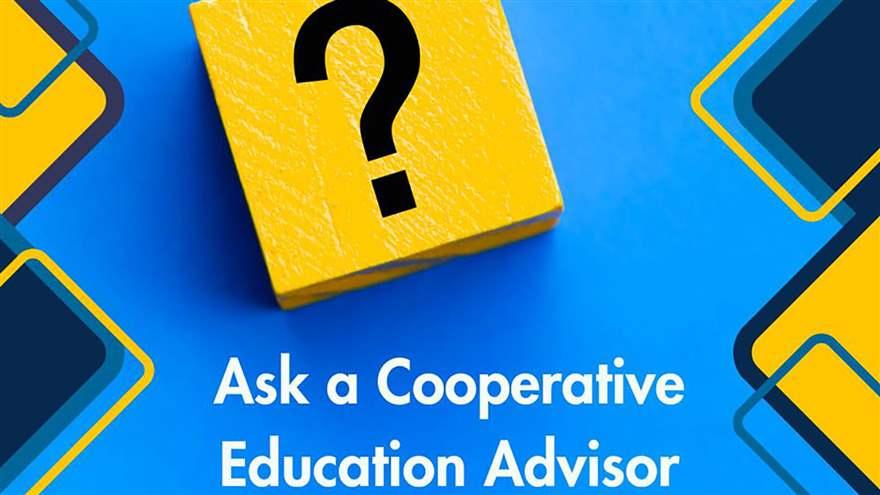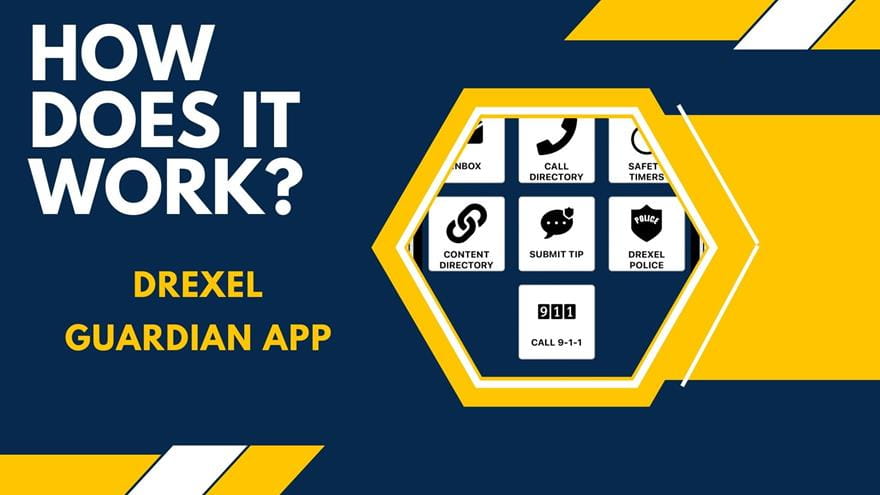Ask a Cooperative Education Advisor: Demystifying Co-op

Cooperative Education Advisor Trish Auletta wrote the following article explaining frequently asked questions about the Drexel Co-op program, including how job-searching can work using or outside of Drexel's internal system:
Drexel University is often synonymous with the word “co-op,” also known as cooperative education. Individuals are enticed by Drexel’s Co-op program because it offers valuable, paid work opportunities for students who can maintain full time enrollment in school. Drexel's Steinbright Career Development Center (SCDC) offers a plethora of information and vital resources for students when they embark on their co-op journey. However, students are often puzzled by the co-op process and may not fully understand how their choices might affect their experience.
Below are 10 frequently asked questions that can help demystify the process for curious students:
1. What is co-op?
Co-op is a six-month-long professional work experience that Drexel students alternate with their academic classes. The co-ops occur in cycles, which usually take up two quarters: Fall/Winter or Spring/Summer. Students can choose one co-op experience or three, according to their interests and plan of study.
2. Am I paid while on co-op?
The majority of co-op jobs are paid positions. Students linked with unpaid co-ops can apply for funding through the SCDC or other resources on campus. A key benefit is that students are not required to pay tuition while working on co-op!
3. Can I participate in co-op as an international student?
Yes! Many of our international students secure co-op positions each cycle. Some employers might require U.S. Citizenship on their applications depending on the nature of their work, but the SCDC works hard to educate employers that all students are eligible to work when enrolled at Drexel. Co-op advisors collaborate with the International Students and Scholars Services to help students secure work authorization and social security numbers, if needed.
4. How do I find out what my co-op cycle is? Can I change it?
To check your preassigned co-op cycle:
- Log into DrexelOne
- Click on the Co-op+Career Services tab
- In the Co-op channel, click on Resume Development for Co-op
- In the upper right-hand corner of the screen, there is a yellow box with your co-op cycle, advisor's name and contact information.
First-year students can request to change their co-op cycle before classes begin in September by contacting their assigned co-op advisor. They can participate in a partner swap, which entails a student finding another person in the same major with an opposite cycle to switch with, or by writing an appeal as an individual, stating the specific reasons why the request is being made. The appeals committee reviews the request, though there is no guarantee a swap will be made.
5. What is required before I start co-op?
Students must enroll in and pass COOP101 and meet with their co-op advisor prior to their cycle to be eligible to apply. During their coursework, students will create a resume, which will be uploaded into SCDC online and later used to apply to positions.
6. What problems might I experience while applying for / preparing for co-op?
Aside from meeting with your co-op advisor the cycle prior and passing COOP101, students must accumulate 24 credits over the two terms prior to their scheduled co-op. Having a 2.0 or higher GPA and progressing toward graduation are also requirements of co-op eligibility.
7. How does job searching work, exactly?
SCDCOnline is the Drexel co-op job database designed exclusively for co-op students. During each round of applications, known as A, B and C round, students search for jobs posted by employers and apply with the click of a button. Over this five-day window when the round is active and “open,” students are encouraged to apply to up to 35 jobs. Their résumé is sent to the employer which requests an interview. Once employers accept or decline résumés, they may interview candidates and then rank them in the order in which they want to hire them. Students also rank employers by accepting an offer or rating them as a second, third, etc. choice. The Optimal Pairing process is an algorithm that occurs after rankings are entered, aiming to pair the most amount of employers and students together. One piece of advice we give students is, “Do not rank an employer unless you know you want to work with them!” This is because even if a student ranks an employer as one of their last choices, there is still a chance students can be paired with them.
8. Can I work for a company outside of Drexel’s online search system, SCDCOnline?
Absolutely. Co-op advisors encourage students to independently search outside of Drexel’s SCDC online portal for additional work opportunities. If a student has a connection outside of Drexel, or finds an employer who has never partnered with us, that is no problem at all. The student simply must submit the following information to their co-op advisor, who will then “pair” them in SCDC online so the co-op can be registered for credit.
- An official offer letter on company letter head that confirms the job title, hours per week, hourly wage/or statement of unpaid
- A detailed job description including a company overview, tasks or responsibilities of position and any qualifications necessary
- A completed Employer Agreement Form
- A completed Student Co-op Registration Agreement form
9. Can I work internationally? Can I study abroad and do co-op at the same time?
Yes, students can work on co-op outside of the United States. Programs that are already established include Greece, Ireland, New Zealand and Singapore. However, if you have another country in mind, you can create your own opportunity. Students who want to study abroad and participate in co-op can work with their academic, co-op and study abroad advisors to curate their plans.
10. What happens when I get a job? What happens if I don’t?
When hiring results are available the day after rankings, some students may not have been paired with an employer. This just means the student has another round to start the process over again. If a student is paired with an employer, that is going to be their co-op job for the following cycle!
One last piece of advice: Students who are eager to begin their co-op journey should ensure they have a résumé that sets them apart and do their best academically to be eligible for co-op when the time comes.
In This Article
Drexel News is produced by
University Marketing and Communications.
